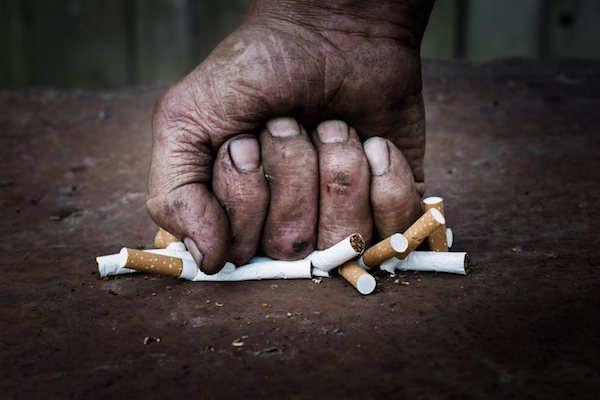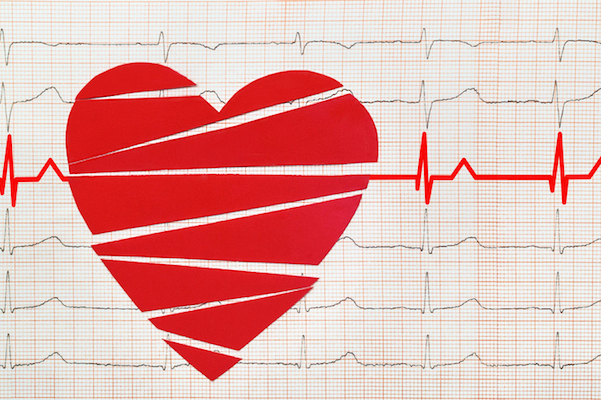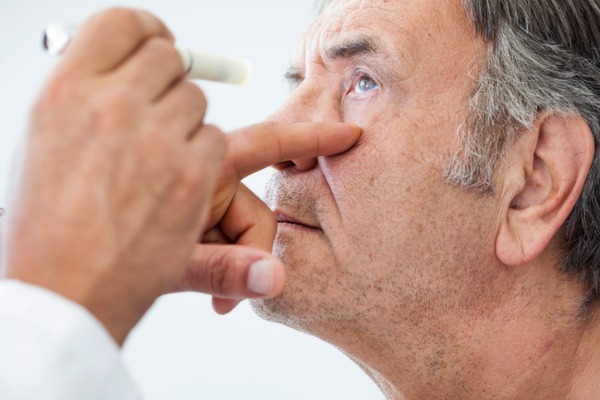
Does Cigarette Smoking Lead to Vision Problems?
Smoking poses a threat to nearly every organ in your body and the eyes are no exception
“I regret the day I ever started,” a friend once told me in reference to smoking. “I wish I’d put all that time, money and effort into something else.”
At the time, I didn’t really know what my friend was saying, so I brushed it off. But now, I completely understand and offer up the following advice (better late than never).
By the Numbers:
If it’s not yet completely obvious, smoking is the leading cause of preventable disease in the United States (it outpaces obesity and alcohol by a long shot). According to the Centers for Disease Control and Prevention (CDC), “Economic costs (for the years 2009-2012) due to smoking are estimated to be more than $289 billion a year. These costs include at least $133 billion in direct medical care for adults and more than $156 billion for lost productivity due to premature death…”
The CDC also says, “Cigarette smoking accounts for more than 480,000 deaths each year. Each day, more than 3,200 youth younger than 18 years smoke their first cigarette and another 2,100 youth and young adults who smoke every now and then become daily smokers.”
Smoking Vision Problems:
Smoking poses a threat to nearly every organ in your body, and the eyes are no exception. It’s what’s known as a modifiable risk factor, which is a risk factor that can be controlled. In simple terms, if you want a better chance at fighting off several long-term diseases, then stop smoking now (easier said than done, I know).
An example of an unmodifiable risk factor is genetics. If a disease such as macular degeneration runs in your family, unfortunately you can’t change that. But you CAN control the amount of healthy foods you consume. You CAN control how much you exercise. And yes, you CAN stop smoking (with the right approach).
Eye health risks associated with smoking include:
- Macular degeneration (3x more likely than a non-smoker)
- Cataracts (twice as likely as a non-smoker)
- Dry eye (twice as likely as a non-smoker)
Overall health risks associated with smoking include:
- Lung Cancer (and sixteen other types of cancer… SIXTEEN!!)
- Emphysema
- Chronic bronchitis
- Premature aging including wrinkles
- Yellowing of the teeth and fingernails
- Hypertension (or high blood pressure)
- Diabetes
- High cholesterol
- Stroke
- Heart attack
And that’s just off the top of my head. The list goes on and on, but I think you get the point. It’s also worth mentioning that secondhand smoke puts our loved ones AND our pets at risk for disease as well.
Behind the Addiction:
One of the main reasons people smoke is because cigarettes are a source of nicotine. A typical cigarette contains about two milligrams of this extremely addictive substance. In humans, nicotine acts as a stimulant which can cause certain people to feel more alert, calm and focused. And at high doses, it can even be lethal.
Others claim that smoking reduces their appetite, which is a weight management shortcut. For this reason alone, many people don’t even want to quit smoking.
Chain-smoking is also a drug-reinforced behavior. The more you get, the better you feel. And once you find yourself in the grip, you tend to want it more and more.
Anti-Smoking Efforts:
Tips From Former Smokers, TheTruth.com, and others have led the charge against the tobacco industry in recent years. Their efforts have been effective through the use of catchy ad-campaigns and graphic commercials depicting the long-term affects of smoking.
Over the last few years, the World Heath Organization (WHO) has made quite the push against the illegal trade of tobacco. According to WHO, “Eliminating the illicit trade in tobacco would generate an annual tax windfall of US$ 31 billion for governments, improve public health, help cut crime and curb an important revenue source for the tobacco industry.”
Major League Baseball has been forced to comply with new laws that ban chewing tobacco from ballparks. Los Angeles, San Francisco, and Boston are the first cities to enforce the rule. New York and Chicago will climb onboard later in the year.
If that’s not enough, the price of cigarettes has been raised significantly on a national scale. Right now, the national average price of one pack sits at $5.51. The average price in the state of New York is over $12, with prices reaching over $14 in New York City.
It’s Time to Quit:
If you can honestly say that smoking has done more harm than good in your life, then it’s time for you to quit. If you decide to give it a shot, your primary care physician is your best resource. It’s also vital to have a support group on your path to recovery. Furthermore, if you know someone who’s trying to quit, try to be as encouraging as possible.
Some doctors will recommend nicotine replacement therapy (like nicotine gum or the patch). Some will advise anti-depressant medications. You can speed up the process by finding better uses of your time. Reinforcing different habits such as a new hobby (with your newfound cash) or exercise (no matter how hard) will prove to be beneficial as well.







